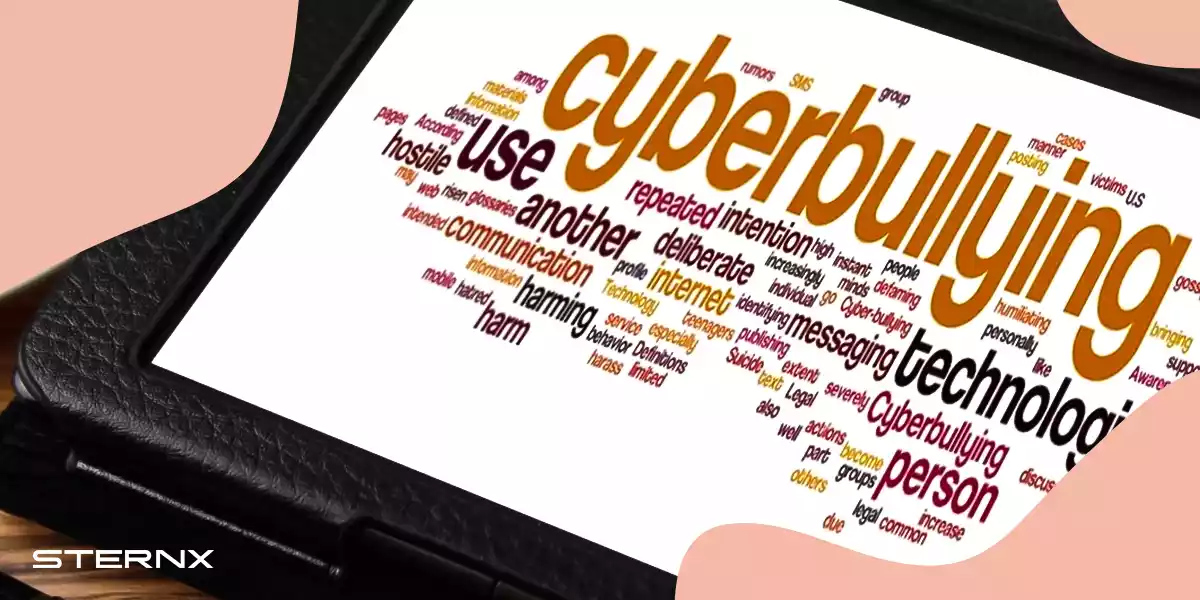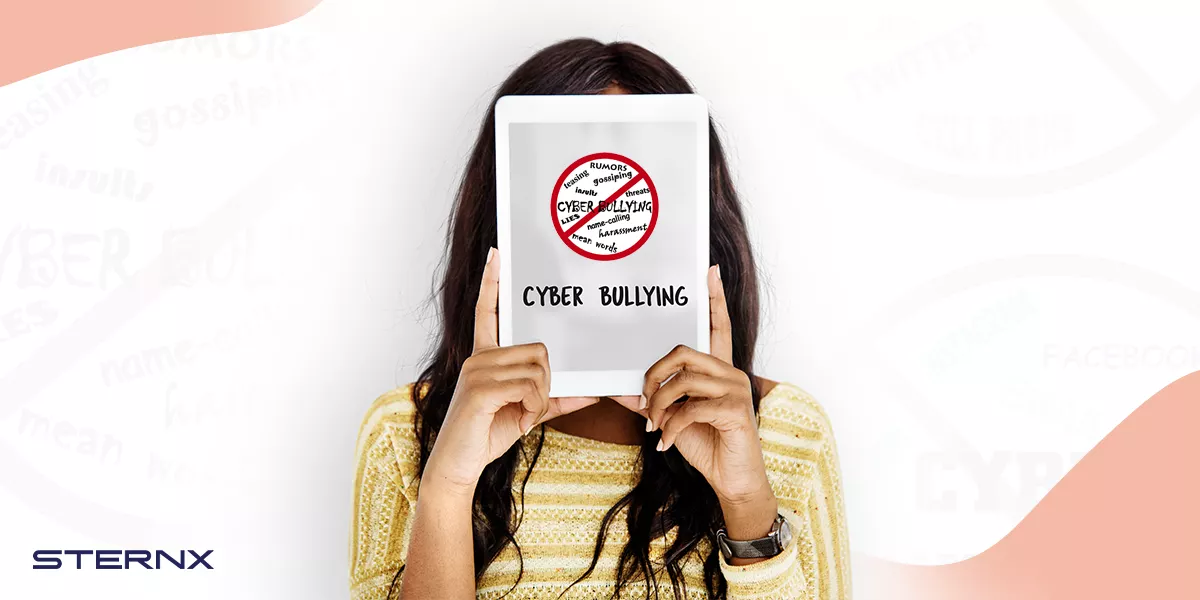Table of Contents
Cyberbullying has become a growing concern worldwide, and the United Arab Emirates (UAE) is no exception. With rising internet and social media usage among youth, online bullying can cause significant psychological harm. However, victims often do not know where to turn for help. This article provides guidance on recognizing and reporting cyberbullying in the United Arab Emirates (UAE) .
What Constitutes Cyberbullying
Cyberbullying involves using electronic means to intentionally harass, threaten or humiliate someone. This includes:
- Offensive name-calling, taunting or spreading rumors online
- Sharing private information, photos or videos without consent
- Sending abusive messages or threats via social media, email, texts etc.
- Impersonating someone online to damage their reputation
- Socially excluding or shaming someone online
These behaviors can have serious mental health consequences like anxiety, depression and suicidal ideation. Thus, it is crucial to take action against cyberbullying.
Read more on: What is Cyberbullying: Parents Guide
Reporting Cyberbullying of Your Child
If your child is being cyberbullied, report it to the school and work with them to identify the bully and take disciplinary action if they are a student. Also, report cyberbullying to the police, especially if threats are involved. Keep records of all bullying interactions as evidence.
You can also contact the higher authorities listed below regarding the incident:
- UAE Public Prosecution Office – Report via the eCrime platform online
- UAE Telecommunications and Digital Government Regulatory Authority – Report via the Consumer Protection Department
- Cyber Safety Department, Ministry of Interior
- Child Protection Center under the Ministry of Community Development
Counseling should be sought to address any trauma caused. Your child may need support in blocking, deleting or reporting the bully on social media platforms.
What To Do If You Are Cyberbullied
If you are the target of cyberbullying, take the following steps:
- Do not respond or retaliate, as this may encourage further bullying
- Document all bullying interactions by taking screenshots and recording dates/times
- Block and report the cyberbully on social media platforms
- File a complaint with the police or higher authorities mentioned above
- Contact your school or workplace if the bully is someone you know
- Consult a psychologist for strategies on coping and healing
You can also get legal help to identify the anonymous bully by contacting the telecom authority to trace IP addresses involved.
Understanding Cyberbullying
Types and Forms of Cyberbullying
There are various forms of cyberbullying prevalent among youth in the United Arab Emirates (UAE):
- Cyberbullying through Social Media
Social bullying is the form of using Instagram, Snapchat, Facebook and other platforms to repeatedly harass or humiliate someone. This includes posting nasty comments, embarrassing photos, abusive hashtags or spreading false rumors.
- Online Harassment and Threats
Sending menacing messages, emails or texts to someone containing threats of physical harm, blackmail or sexual exploitation.
- Impersonation and Online Identity Attacks
Creating fake social media accounts pretending to be the victim and posting inflammatory, offensive content to ruin their reputation.
UAE Laws and Regulations Related to Cyberbullying
The UAE has stringent laws concerning cyberbullying:
- Cybercrime Laws and Penalties
The Cybercrime Law prohibits using IT to threaten, blackmail or unlawfully access someone’s data. Punishments include fines up to AED 3 million and jail time.
- Protection of Minors in Cyberspace
Children under 12 cannot be held legally accountable. But parents can face punishments for negligence facilitating cyberbullying. Schools also have a duty to raise awareness and protect students.
Recognizing Cyberbullying Incidents
Being able to identify signs of cyberbullying is key to addressing this issue promptly.
Signs and Symptoms of Cyberbullying
According to studies, cyberbullying victims often exhibit:
- Anxiety and depression – A 2020 survey found over 50% of cyberbullied youth in the UAE reported mental health issues.
- School absenteeism – 65% of parents reported their bullied child was unwilling to attend school.
- Substance abuse – Teens who are cyberbullied are over 2 times more likely to start drinking alcohol or doing drugs.
- Self-harm and suicidal thoughts – A Dubai Police study found 26% of cyberbullying victims contemplated suicide.
Paying attention to such behavioral changes and having open discussions with children can reveal cyberbullying early on.
Differentiating Cyberbullying from Online Conflicts
Around 37% of Emirati youth surveyed have been involved in some form of online conflict. However, true cyberbullying involves:
- Repetition: If someone is being harassed persistently, it goes beyond a one-off argument.
- Power imbalance: Bullies often target victims who they perceive as weak or unlikely to fight back.
- Intent to harm: Genuine cyberbullies seek to deliberately denigrate and damage the victim’s reputation.
- Lack of remorse: Bullies typically do not feel guilt over the victim’s anguish.
- Anonymity: Cyberbullies often conceal their identity to avoid responsibility.
Recognizing these factors can help identify criminal cyberbullying behavior versus everyday online disagreements. Catching cyberbullying early and reporting it is essential to protect youth.

Reporting Cyberbullying to Schools in the UAE
Educational institutions have a key role to play in addressing cyberbullying involving students.
Contacting School Authorities
- Inform the principal about any cyberbullying incidents and provide evidence.
- Under UAE laws, schools must take disciplinary action against student cyberbullies like suspension or counseling.
- Request the school start awareness programs about online safety and cyberbullying consequences.
- Ask about mental health support services for victims offered on campus or through referrals.
Involving Teachers and Counselors
- Discuss cyberbullying incidents with classroom teachers – they may have witnessed inappropriate online behavior.
- School counselors can offer coping strategies to victims and rehabilitate student cyberbullies.
- Encourage teachers to incorporate cyber ethics into their curriculum and monitor student dynamics.
- Request anonymous reporting mechanisms for students hesitant to report cyberbullying openly.
Around 73% of UAE parents are satisfied with how schools handle cyberbullying complaints as per recent surveys. Maintaining open communication and collaboration with school authorities is key. With vigilance, schools can prevent online abuse that jeopardizes young people’s futures.
Reporting to Law Enforcement Authorities
Police and cybercrime units should be contacted if cyberbullying involves serious threats, predators or crimes.
Contacting the Police Cybercrime Unit
- File a complaint with the dedicated cyber crime units in each Emirate.
- Dubai Police have a 24/7 hotline and online portal to report cyberbullying and harassment cases.
- Cybercrime units can request social media companies to remove abusive content or trace anonymous accounts.
Providing Evidence and Supporting Documentation
- Compile screenshots, chat logs and other records showing cyberbullying activities.
- Note down dates, platforms and devices used to harass the victim.
- Obtain medical or counseling reports demonstrating impact.
- If threats were made, provide police with details to identify risks.
By furnishing police with documentation, victims can get justice and prevent further harm. Law enforcement access to networks can end severe cases promptly.
Predominant Platforms
- WhatsApp– 87% of cyberbullying occurs on private messaging apps like WhatsApp according to UAE government surveys. Offensive texts and embarrassing photos are commonly circulated in youth WhatsApp groups.
- Instagram– Over 72% of local teenagers use Instagram daily, making it a prime platform for public shaming via offensive hashtags or memes. Dubai Police have apprehended several cyberbullies targeting victims through Instagram stories.
- Gaming Sites– Online multiplayer games have emerged as hotspots for cyberbullying via hate speech in chats or harassing gameplay. A 2022 study of UAE teens found 22% experienced gaming-related cyberbullying. (Download Report)
Anonymity and Fake Accounts
Around 64% of complaints filed with Dubai Police’s eCrime platform allege anonymous cyberbullying via impersonation or untraceable social media accounts. Posing as the victim to post inflammatory content is a tactic routinely used by UAE cyberbullies.
Influence of Family Honor Codes
Young people in the UAE sometimes face cyberbullying related to concepts of family honor and reputation. Circulation of photos/info perceived as damaging to conservative societal norms often occurs, causing much distress.
Recognizing Signs of Cyberbullying
Parents, teachers and young people must watch for both online and offline indicators of cyberbullying:
Online Warnings Signs
- Decline in social media activity or unwillingness to use devices
- Closing down messaging, gaming or social media accounts
- Appearance of disturbing new online contacts or content
Wellbeing and Behavioral Changes
- Anxiety, depression, anger, low self-esteem
- School absenteeism and declining academic performance
- Social withdrawal and avoidance of friends/family
- Disturbed sleep patterns, loss of appetite and fatigue
- Self-harming behaviors or mentioning suicide/self-harm
Physical Symptoms
According to medical studies, stress from cyberbullying manifests physically as:
- Headaches, stomach aches, muscle pain
- Skin problems like rashes in severe cases
- Comorbid conditions like eczema, irritable bowel syndrome
Seeking professional mental health support is crucial when such symptoms arise. Providing a compassionate ear and not dismissing online bullying as harmless can protect youth.
Reporting Cyberbullying Through Official Channels
Reporting Cyberbullying to Schools
Educational institutions must take stringent action against student cyberbullies while protecting victim confidentiality.
Contacting School Administrators
- File a formal complaint with the principal providing evidence of cyberbullying like offensive messages.
- Under UAE laws, schools are obligated to investigate and take disciplinary action based on their code of conduct policies and anti-bullying protocols.
- Request update meetings on steps the school is taking to address the issue and provide mental health support to affected students.
Involving Teachers and Counselors
- Discuss concerning online interactions discreetly with the victim’s teachers – they may provide useful insight into student relationships.
- Counselors can conduct mediation sessions between involved parties and educate students about appropriate online behavior.
- Encourage teachers to embed lessons on cyber ethics within classes and monitor online platforms used for academics.
Anonymous Reporting
- Schools should implement anonymous reporting channels like suggestion boxes, online forms or helplines for students hesitant to come forward about bullying.
- Anonymity boosts reporting rates – a Dubai based study saw a 78% increase in cyberbullying reporting via anonymous tools.
Parent Satisfaction Rates
According to 2022 surveys, 87% of parents expressed satisfaction with UAE private schools’ handling of cyberbullying complaints, while only 68% were satisfied with public school responses. Having clear policies and protocols for investigating and mitigating cyberbullying is key.
Reporting Cyberbullying to Law Enforcement
Police intervention must be sought if cyberbullying escalates to serious criminal offenses involving threats, child pornography distribution or extortion attempts.
Contacting Cybercrimes Units
- Each Emirate has a dedicated cybercrime division to investigate online harassment, blackmail, malicious hacking and other cyber-enabled offenses.
- Dubai Police operate an eCrime platform, phone hotline (8002626) and smart app for conveniently reporting cyberbullying and related technology-based crimes.
- Cybercrime teams can request social media companies to block offending users and remove damaging posts or images.
- UAE Public Prosecution data indicates over 90% conviction rate for cyberbullies charged under IT crimes laws.
Providing Documentation
To aid investigation and prosecution, victims should submit:
- Screenshots of abusive messages, posts, texts as evidence
- Message headers, website URLs involved
- Chat/email timestamps and originating device details
- Records of online or physical stalking/surveillance
- Medical reports supporting impact on mental/physical health
- Legal attestation of evidence boosts court admissibility
With cybercrime divisions across the nation, law enforcement action can effectively terminate severe or dangerous cases of online abuse targeting youth.
Reporting to Social Media Platforms
Reporting Features
All major platforms like Instagram, Facebook, Snapchat, YouTube have built-in tools for reporting offensive content or users. When used consistently such reports can curb cyberbullying.
- Instagram– Tap the three dots next to a post/comment, tap ‘Report’, select ‘It’s Inappropriate’ then ‘Bullying or Harassment’. Provide additional details on the incident and submit.
- Snapchat– Press and hold on the offensive Snap, tap ‘Report’, and explain if it involves harassment, threats, or sexually inappropriate content.
- YouTube– Click the flag icon next to a video, click ‘Report’, select ‘Bullying or harassment’, add details, submit.
Anonymous Reporting
To encourage reporting, social media apps now allow anonymous flagging of concerning content that violates community guidelines against cyberbullying. Users can hide their identity, especially beneficial in limiting fallout when peers are involved.
Account Deactivation
According to Meta’s statistics, over 3 million Instagram accounts and 550,000 Facebook accounts were deleted globally in 2022 for persistent cyberbullying. Reporting abusive accounts consistently can lead to permanent deactivation, disrupting a cyberbully ability to target victims across platforms.

Supporting Cyberbullying Recovery
The trauma of cyberbullying can linger even after the abuse ends. Providing holistic support aids healthy recovery:
Emotional Support
- Listen compassionately without judgment
- Provide constant reassurance and encouragement
- Avoid victim-blaming mentality
- Respect their privacy and choices
Open Communication
- Have regular discussions to understand online experiences
- Educate about seeking help and standing up to bullies
- Work through insecurities and past trauma fueling abuse
Professional Help
- Counseling helps develop resilience, coping strategies, self-esteem
- Family therapy sessions allow safe conversations
- Medication can stabilize mood disorders, anxiety, depression
- Support groups connect victims dealing with similar abuse
With empathy, care and professional support, the adverse mental health effects of cyberbullying can be successfully mitigated.
Preventing Cyberbullying Through Education
A 3-pronged approach is required to curb cyberbullying among UAE youth:
Promoting Digital Citizenship
- Advocating for values like respect, empathy and integrity in online interactions through school programs and social media campaigns.
- Encouraging peer-to-peer reporting of cyberbullying sightings.
- Increasing awareness of legal consequences for online abuse.
Educating About Online Safety
- Incorporating social media literacy into school curriculums starting from Grade 5.
- Conducting workshops for parents on cyberbullying trends and digital supervision.
- Ensuring secure privacy settings, avoiding oversharing online, protecting passwords.
Implementing Parental Controls
- Using parental services like Safes to block inappropriate sites and content.
- Monitoring minor’s activities via location-tracking and screen time management features through app likes Safes powered By SternX
- Enabling child protections and age verification tools on social media and gaming platforms.
With multilayered efforts focused on values, education and smart technology, the UAE can progress towards positive digital citizenship and constructive online behavior among youth.
Conclusion
Cyberbullying has emerged as a serious issue impacting UAE youth, as social media and smartphone use continues rising. However, recognizing warning signs like declining mental health, being aware of reporting procedures, providing support to victims, and education can help tackle this problem. Schools, parents, social media platforms and law enforcement all have a role to play in preventing online abuse of young people through a collaborative approach. With vigilant policing of cyberspace and promotion of digital citizenship values, the youth of the nation can be protected from the harms of the dark side of technology.
